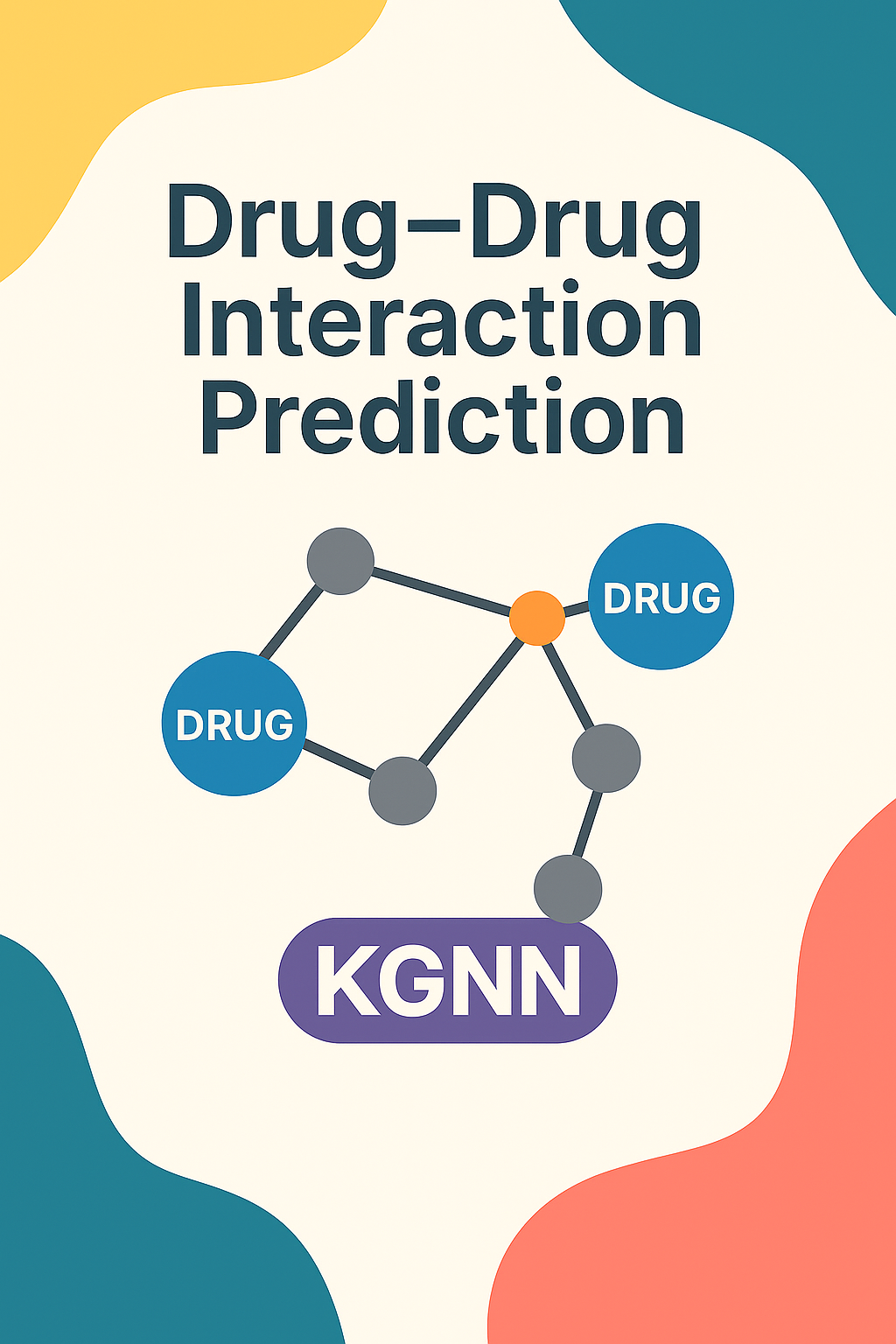This repository contains a production-ready web application for predicting drug-drug interactions (DDIs) using Knowledge Graph Neural Networks (KGNNs), enhanced with interactive graph explanations. The platform is designed for researchers, data scientists, and healthcare practitioners to explore predicted interactions and understand the reasoning behind them.
- Introduction
- Features
- Installation
- Usage
- Web Application
- Data
- Model
- Results
- Sources
- Next Steps / TODOs
- License
Drug-drug interactions can lead to severe side effects or reduced efficacy in treatment. Predicting such interactions in advance is critical in drug development and personalized medicine.
This project uses graph-based representations of biomedical entities and models their relationships using KGNNs to accurately predict interactions. It further visualizes these predictions using explainability techniques like PGExplainer and D3.js.
- GraphSAGE-based DDI prediction with trained embeddings
- Interactive web interface built with Flask and D3.js
- Dynamic prediction and graph-based explanation
- Node filtering by type (Drug, Protein, Side Effect, etc.)
- Node highlighting, tooltips, and clickable details with links to DrugBank
- End-to-end prediction logging to CSV
Clone the repository and install dependencies:
git clone https://github.com/<your-username>/KGNN-Drug-Drug-Interaction-DDI-Prediction
cd KGNN-Drug-Drug-Interaction-DDI-Prediction
pip install -r requirements.txtpython run.pyAccess the web interface in your browser at:
http://localhost:5050
The web application is built using Flask and D3.js. It allows users to input drug names and visualize the predicted interactions in a graph format. The graph is interactive, allowing users to filter nodes by type and view detailed information about each node.
- Home Page - Inpute two drug IDs and predict interaction probability.
- Graph Explanation – View influential neighbors and edge importance.
- Download Log – Export prediction history.
The application uses the ogbl-biokg dataset from Open Graph Benchmark (OGB), processed into heterogeneous graph format.
Graph converted using to_homogeneous() for PGExplainer, while training is done with original heterogeneous BioKG graph.
We use a custom GraphSAGE architecture to embed drug/protein entities.
-
embedding_dim = 128 -
2-layer GraphSAGE
-
Trained using edge classification over flattened edge types
-
Embeddings are used for prediction:
score = sigmoid( dot(emb1, emb2) )
Basic prediction results include:
- Predicted interaction probability
- Most similar neighbors via cosine similarity
- Graph explanation with edge weights
- Logging via predictions_log.csv
Future Evaluation Metrics (WIP)
- Accuracy, ROC-AUC, PR-AUC
- Precision, Recall, F1-score
- Explanation faithfulness evaluation
- BioKG
- OGB-L BioKG Dataset
- DrugBank
- PubChem
- Hetionet
This app supports optional DrugBank integration for enhanced drug metadata. Due to licensing restrictions, you must:
- "Apply for a DrugBank academic license."
- "Download the required files (e.g., drugbank_all_drug_links.csv)."
- "Place them in backend/drugbank_data/ (see README)."
- "Restart the app to enable enriched drug info in prediction results."
- ◽️Incorporate SHAP or KGNNExplainer for advanced local explanations.
- ◽️Add confidence intervals or calibration on prediction scores.
- ◽️Support additional datasets (e.g., DrugCentral, STITCH).
- ◽️Refactor model.py for GraphSAGE and R-GCN dual support.
- ◽️Add Docker and deployment instructions.
- ◽️Add unit tests and GitHub CI workflow.
- ◽️Improve responsive design and D3 performance.
This project is licensed under the MIT License.



